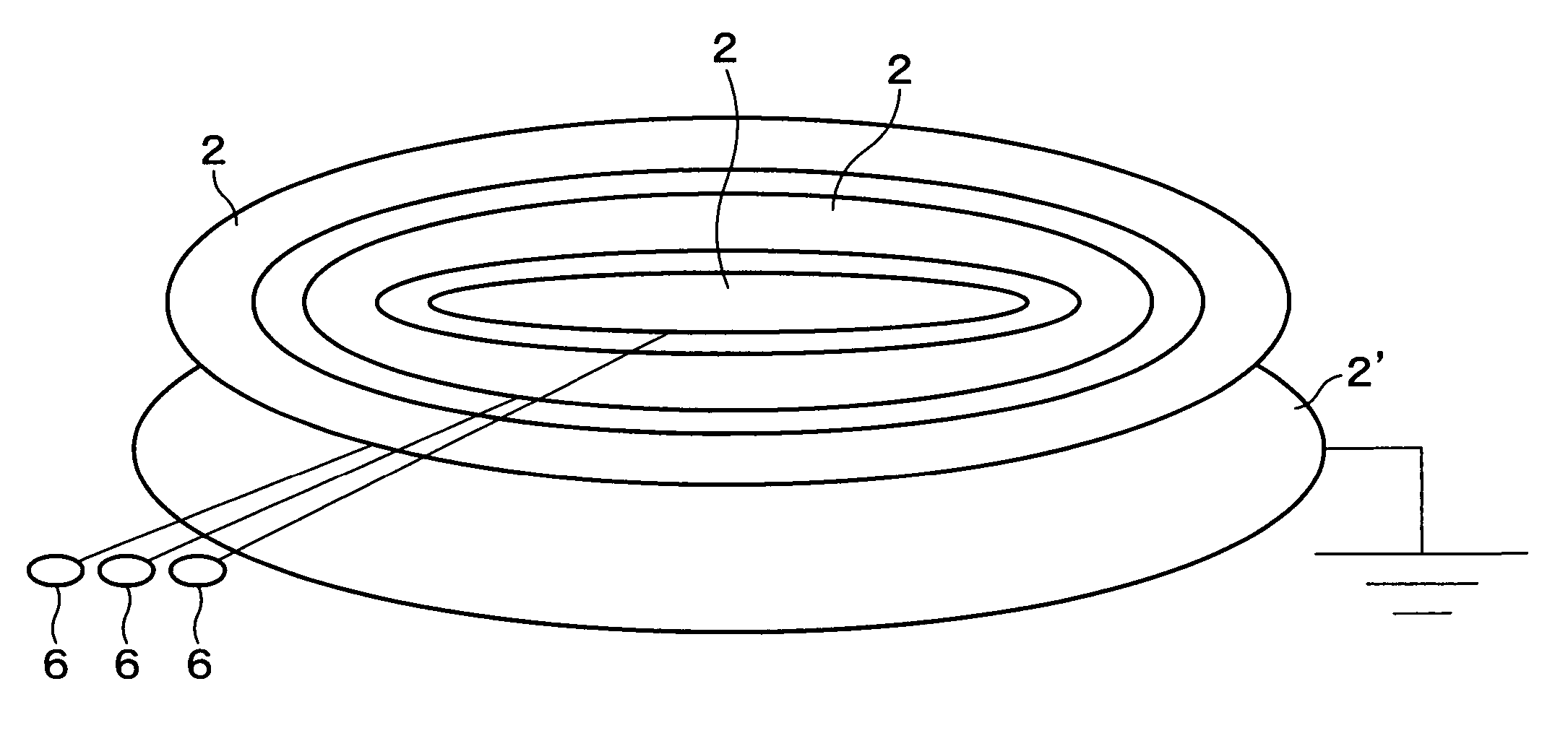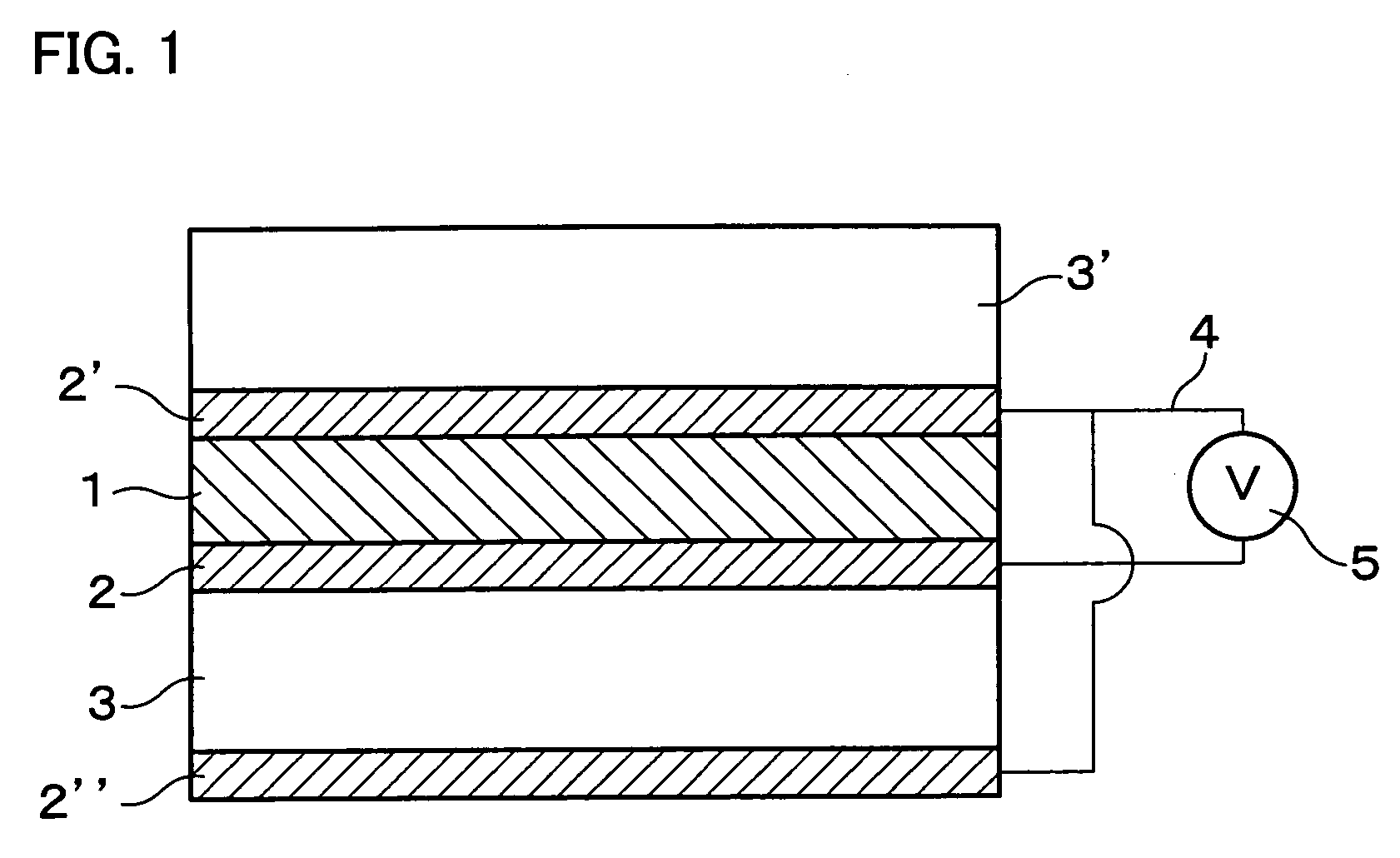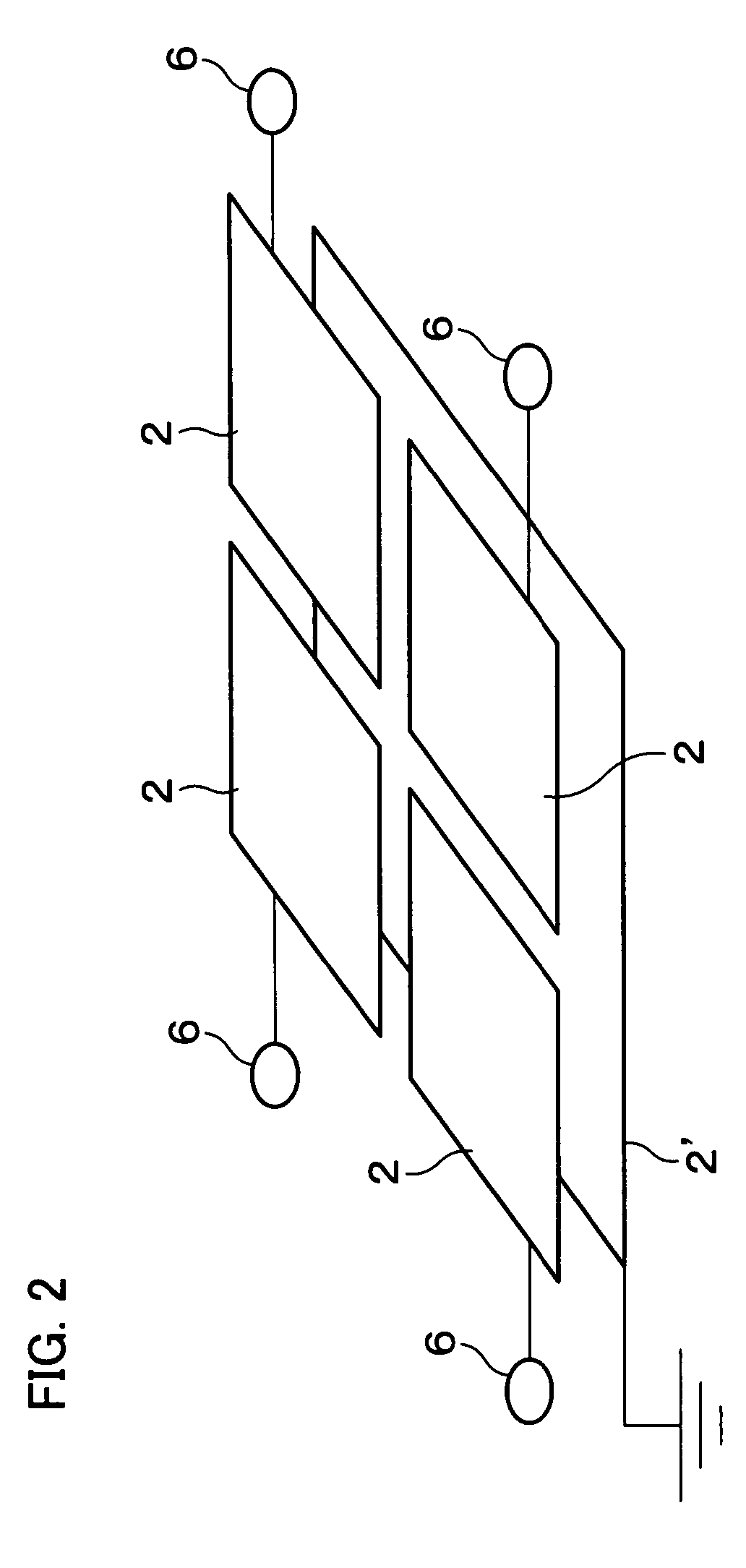Piezoelectric sensor and input device including same
a technology of piezoelectric sensor and input device, which is applied in the direction of force measurement using piezo-resistive materials, instruments, fluid pressure measurement, etc., can solve the problems of complex structure, impaired durability, and difficulty in dealing with simultaneous multipoint contact, and achieves improved piezoelectric properties, improved piezoelectric properties, and excellent heat resistance.
- Summary
- Abstract
- Description
- Claims
- Application Information
AI Technical Summary
Benefits of technology
Problems solved by technology
Method used
Image
Examples
example 1
[0138]An example of the piezoelectric sensor according to the First Embodiment will be described below.
[0139]A glass substrate with ITO (i.e., a glass substrate whose one surface is coated with ITO) was used as a transparent substrate and a transparent conductor film layer. The glass substrate with ITO had a thickness of 1 mm. Next, a thin film of aluminum nitride with a thickness of 1 μm serving as a transparent pressure-sensitive layer was formed on ITO of the glass substrate with ITO by a sputtering process.
[0140]Then, another glass substrate with ITO was prepared, and its ITO layer was bonded to the transparent pressure-sensitive layer of aluminum nitride with a cyanoacrylate-based binder.
[0141]That is, the piezoelectric sensor of the present invention was made of a glass substrate (transparent insulative substrate layer), ITO (a transparent conductor film layer), aluminum nitride (a piezoelectric element), ITO (a transparent conductor film layer), a glass substrate (transparent...
example 2
[0209]An example of the piezoelectric sensor according to the Third Embodiment will be described below.
[0210]A base layer of a circular aluminum thin film with a diameter of 3 mm was formed by a sputtering process on a surface of a quartz glass substrate with a diameter of 17 mm and a thickness of 1 mm. Further on the base layer, a piezoelectric thin film layer of an AlN (aluminum nitride) thin film with a thickness of about 1 mm was produced by a sputtering process.
[0211]An analysis of an X-ray diffraction pattern showed that the AlN has an excellent crystalline property and is oriented in a c-axis direction. Further, a dipole orientation degree of a piezoelectric layer was 92%.
[0212]Next, a circular aluminum electrode, serving as an upper electrode, with a diameter of 3 mm was produced by a sputtering process on a surface of the AlN so as to overlap a lower electrode.
[0213]FIG. 10 shows a result of an oscillation detection measurement by a compression-type thin-film piezoelectric ...
PUM
| Property | Measurement | Unit |
|---|---|---|
| thickness | aaaaa | aaaaa |
| operating temperature | aaaaa | aaaaa |
| combustion temperature | aaaaa | aaaaa |
Abstract
Description
Claims
Application Information
 Login to View More
Login to View More - R&D
- Intellectual Property
- Life Sciences
- Materials
- Tech Scout
- Unparalleled Data Quality
- Higher Quality Content
- 60% Fewer Hallucinations
Browse by: Latest US Patents, China's latest patents, Technical Efficacy Thesaurus, Application Domain, Technology Topic, Popular Technical Reports.
© 2025 PatSnap. All rights reserved.Legal|Privacy policy|Modern Slavery Act Transparency Statement|Sitemap|About US| Contact US: help@patsnap.com



